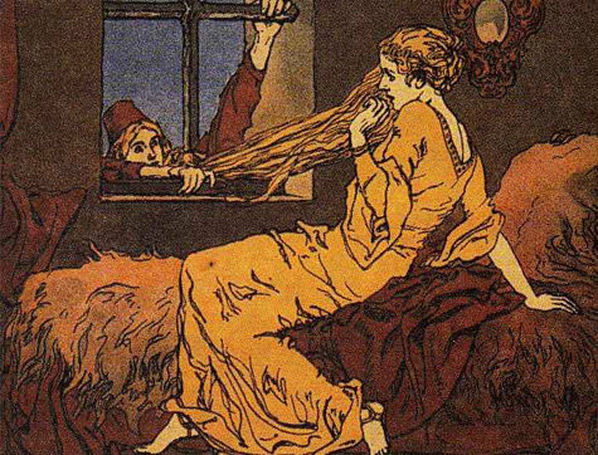|
The Breadcrumbs widget will appear here on the published site.
Rapunzel probably never had an orgasm.By Christine Stoddard QuailBellMagazine.com How many works of classic literature would be ruined if more heroines' fathers had been like Ferrett Steinmetz, author of the now viral essay, “Dear Daughter: I Hope You Have Some Fucking Awesome Sex”? One thing even a nostalgic gal like me can't romanticize is sexism. If I could imagine an old-timey era without institutionalized -isms, modern plumbing and refrigeration, efficient transportation, and the Internet, I'd be left with the inventories of today's antique and vintage shops. Sexism thrived in Medieval Europe and Antebellum America and Victorian England and all those other time periods I so adore as much as it does today, and more. I cannot deny that. That's the problem with nostalgia—you're trapped in this mental state of yearning for something that never truly existed. Sure, in some ways the Middle Ages were easier. As a woman, I would have had very few life choices and thus, the angst that comes with weighing all of my options as a modern woman wouldn't have overwhelmed me as it does today. I would've worked in the fields, cooked, tended to animals, birthed children, and raised those children if I lived past childbirth. Today I have a whole menu of choices, whether personal, academic, or professional. I have to think and over-think until I've decided which choices make the most sense for me as an individual. Yet even with that angst, I would much rather have choice. In fact, I am lucky to enjoy such freedom of choice and I appreciate the feminists of generations past who fought for my rights. That is not to say that my menu is as diverse as it should be. Our world is obviously not an egalitarian one, and all of us should continue to fight for a fairer society. But it cannot be argued that I have fewer choices than my medieval peasant self in an alternate universe would have had. I have more choices. Objectively. Sex is one sphere where women have a wider range of socially acceptable choices than they once did. Today I can pursue nearly whatever sexual lifestyle I wish. Though some lifestyles are judged harsher than others, I can pretty much guarantee that nobody's going to stone me, regardless of what I choose to do in the bedroom and with whom. Contrast that to my medieval self. I probably would've been forced to wear an iron-clad chastity belt until I entered an arranged marriage with a man twenty years my senior. Since this was a time when lust was highly discouraged and female sexuality was deemed suspicious at best, it's likely I would not have had my needs met. My medieval husband would've done his business and called it a night. There's not much wiggle room in that scenario, right? Now we live in the era of the sexual double standard for women. We're prudes if we're virgins, but sluts if we're not. It's definitely problematic. But at least in this age, the standard is not so one-sided. My medieval self would've been brainwashed into thinking that virginity was the highest virtue and the measure of her self-worth. In this day and age, almost half of all American teenagers have lost their virginity by the time they graduate from high school. My favorite line in Steinmetz's essay is, “I’m not the guard who locks you in the tower,” because it shatters those nostalgic images we have of the Middle Ages. When I was a little girl, my favorite fairy tale was “Rapunzel,” mainly because the idea of such solitude appealed to me. What I, of course, didn't consider was the real reason Rapunzel was locked up in a tower: to protect her virtue. What I admire about Steinmetz's view is that he's telling his daughter that nobody can make choices about her sexual lifestyle except for her. She needs to own those choices and find pleasure in them. Rapunzel's sexual choices were made by the evil witch who held her hostage. But Rapunzel should've been allowed to do as she pleased, as long as she didn't harm anyone. If she wanted to remain celibate, that should've been up to her. If she wanted to have multiple partners, that should've been up to her. If I were to rewrite “Rapunzel” for my daughter one day, I'd like to omit the “happily ever after” and cop Steinmetz's phrase instead: “And Rapunzel became a strong woman who knows where her bliss is and knows just what to do to get it. The end.” CommentsComments are closed.
|
|








